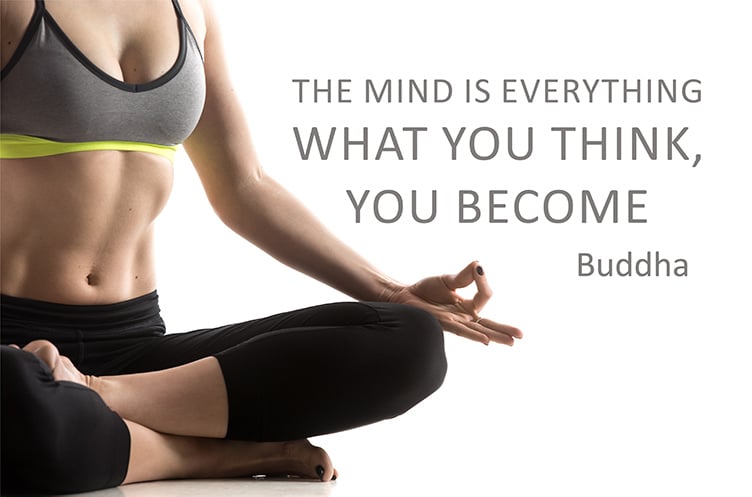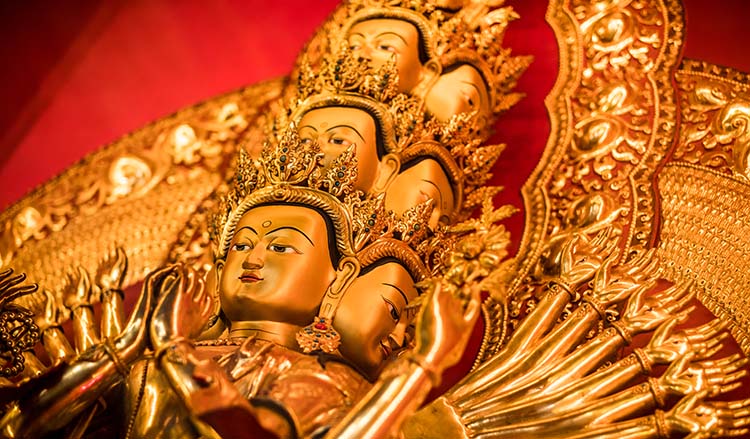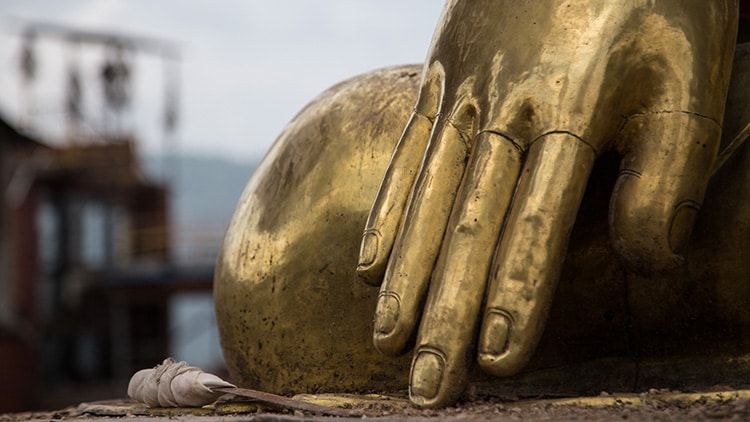Meditation Definition: What is Meditation? Take Charge of the Mind
Category: Beginners Guide to Meditation | How to Meditate | Popular

Good question! Meditation is indeed learning to work with the mind. The Cambridge dictionary defines meditation as “the act of giving your attention to only one thing, either as a religions activity or as a way of becoming calm and relaxed,” or “serious thought or study, or the product of this activity.” So meditation can involve focusing, relaxing, pondering or the expression of these, as in the famed Meditations of Marcus Aurelius, for example.
The Meaning of Mind and Meditation
Before asking yourself what is meditation? You might want to understand what meditation isn’t. It isn’t about zoning out, or having earth-shattering experiences, or even controlling the mind. Meditation, as a spiritual practice, is more about working with the mind and training in awareness. Simply working with the mind leads to an improved sense of presence, calm, attentiveness, and an increase in valued human qualities such as empathy and patience.
A lot of things in life are beyond our control, but it’s quite possible to have greater control over our actions and how we respond to the situations we find ourselves in. To do this, we need to cultivate awareness of how the mind works and the ability to maintain focus. And nothing cultivates awareness better than meditation does.
Buddhist meditation teaches us that taking charge of our minds is the most crucial human undertaking. But it also teaches us that taking charge of the mind is not about controlling it! It’s about giving ourselves the means to connect with mind’s innate qualities – spaciousness, goodness, creativity – so that mind’s natural light can outshine the shadows of confusion and disturbing emotions. A free mind finds its own peace. The great Zen master Suzuki Roshi put it this way: “To give your sheep or cow a large spacious meadow is the way to control them.”
Think about it: everything we experience is experienced by the mind. Without it, we’d be machines. Our knowledge, memories, joys and sorrows; motor control, artistic abilities, anger, love… everything! But how much time do we devote to getting to know this mind? To training it? Meditation is just that: instead of always focusing on the external world like we usually do, we’re befriending the mind and training it to be aware and relaxed. And unveiling its mind-boggling qualities!
Okay but what is meditation already?
Let’s go back to the beginning: meditation is awareness. When we meditate, we are dedicating a certain amount of time and effort to being as mindful as we can. To do this, we choose a meditation object – the breath, for example – and pay attention to it. We may sit on a cushion or a chair, remaining upright and still, and simply settle our mind on the breath. Breathe in, we’re aware that we’re breathing in. Breathe out, we’re aware that we’re breathing out. Most of us find that the mind does not stay put! One moment we’re paying attention to the breath, or some other meditation object, and the next we are imagining booking a flight to Paris or telling a colleague what we really think of her. Now how did that happen?
That’s mind! It’s completely creative and wants to make itself heard. Giving it space to express itself is the first step to getting to know mind and learning to harness its power. When we realize that we’ve wandered from our breath, we gently but firmly invite mind to come back. And then the mind wanders off. And we bring it back, over and over again. This is the practice of being mindful, of meditation. With time, the mind catches on – we’ve discovered the peace and richness of remaining present, and it becomes harder and harder to pull us away. It’s like those videos of cows that spend winter in a barn being let out into a spring pasture for the first time. They frolic and kick and sniff and graze and enjoy themselves immensely, and eventually the novelty wears off and they settle down and ruminate contentedly.
Meditation teaches us that contentedness and presence are the true keys to happiness (even if society tries to tell us that the latest gadget is the key – it’s not). According to Trinlay Rinpoche, a highly regarded meditation master and philosopher who teaches all over the world, our happiness doesn’t stem from external factors or material pursuits. Rather, the main source of our happiness comes from within. When we practice meditation, our mind learns how to access the wealth of qualities that already exist within us. And when we are able to access our most essential qualities of goodness and compassion, we naturally give them expression in the world around us. And that is what meditation is used for.
Now that you have a better sense of the how, what and why of meditation, you’re probably eager to learn more about it and start meditating through superb online courses. You’ll find lots of good material to inform your practice in our free online meditation course for beginners, which is helpful even for long-term meditators to develop consistency in their practice.






